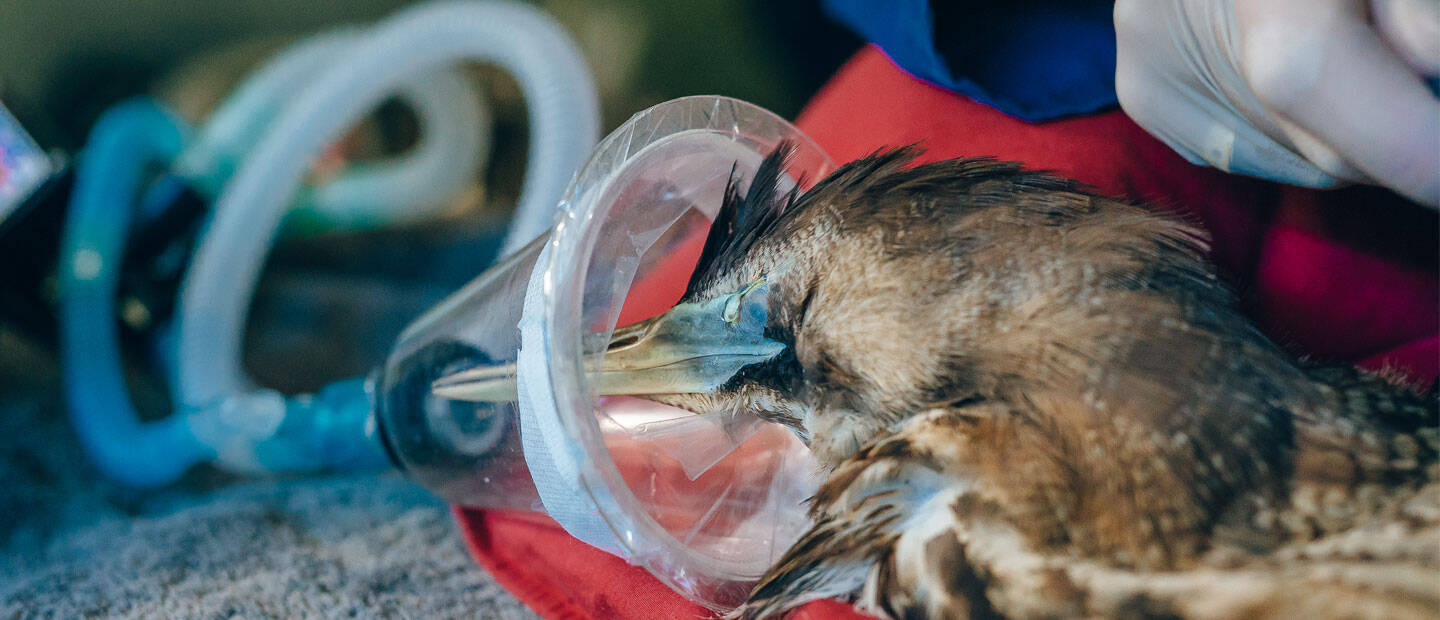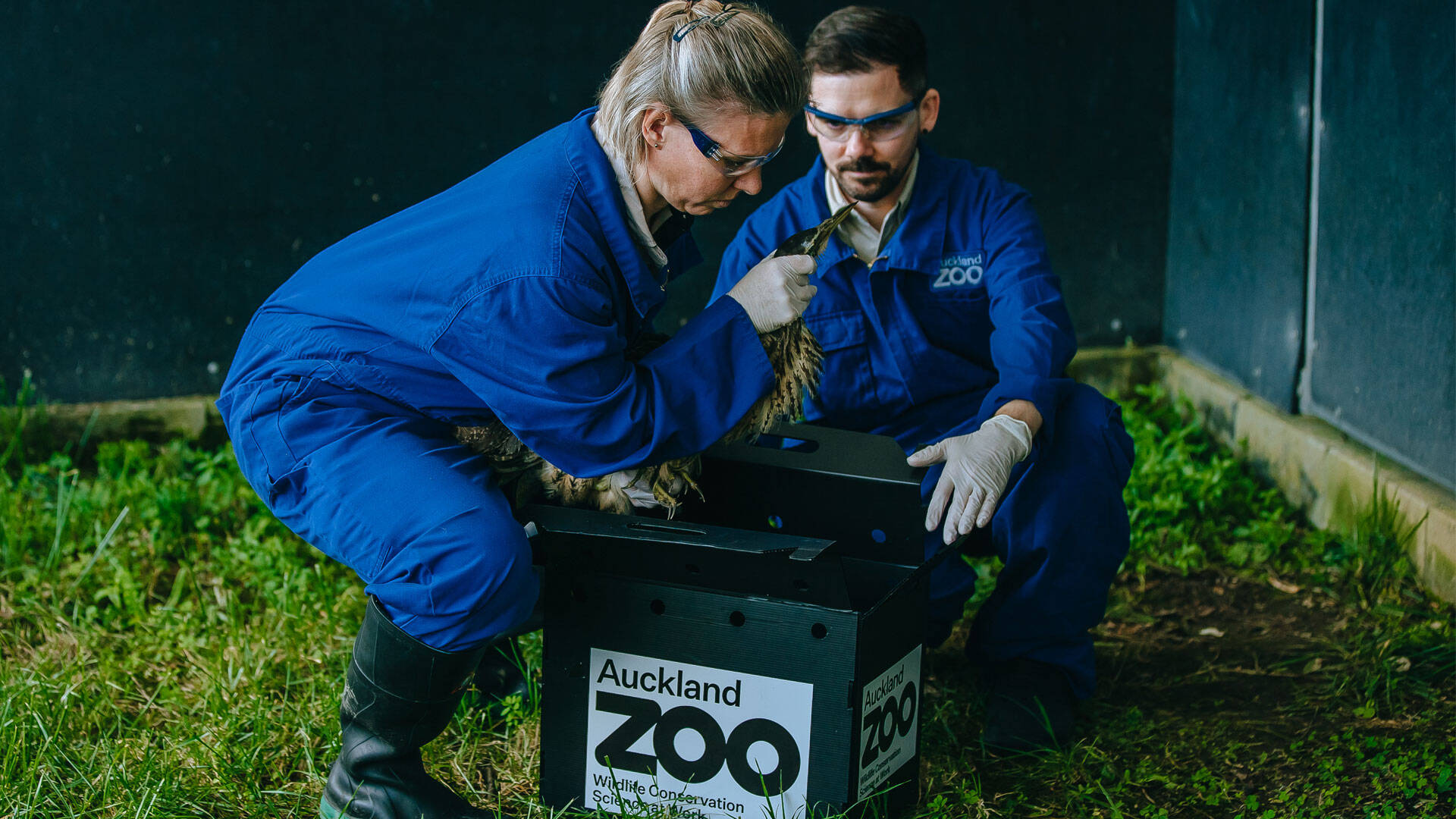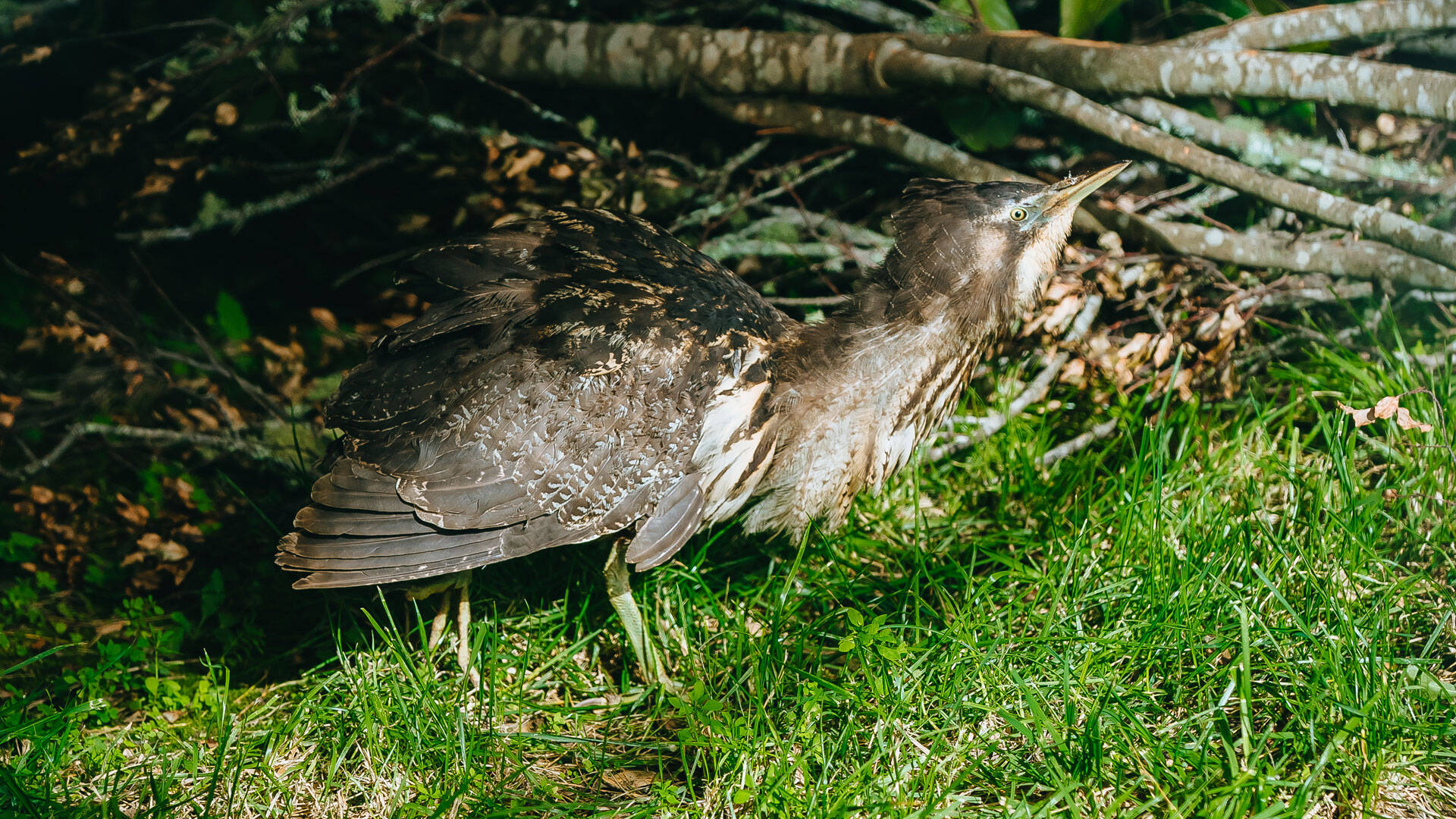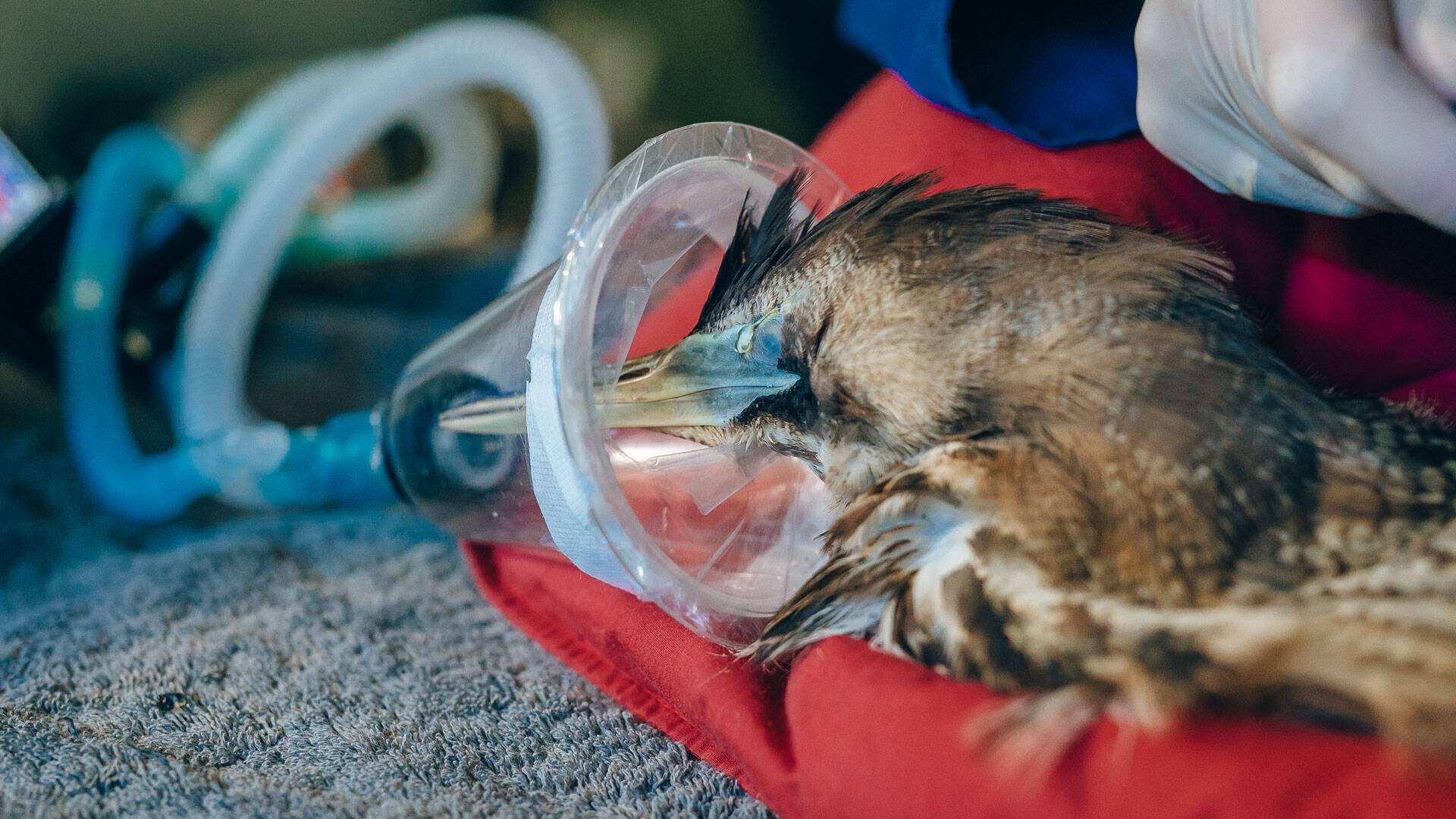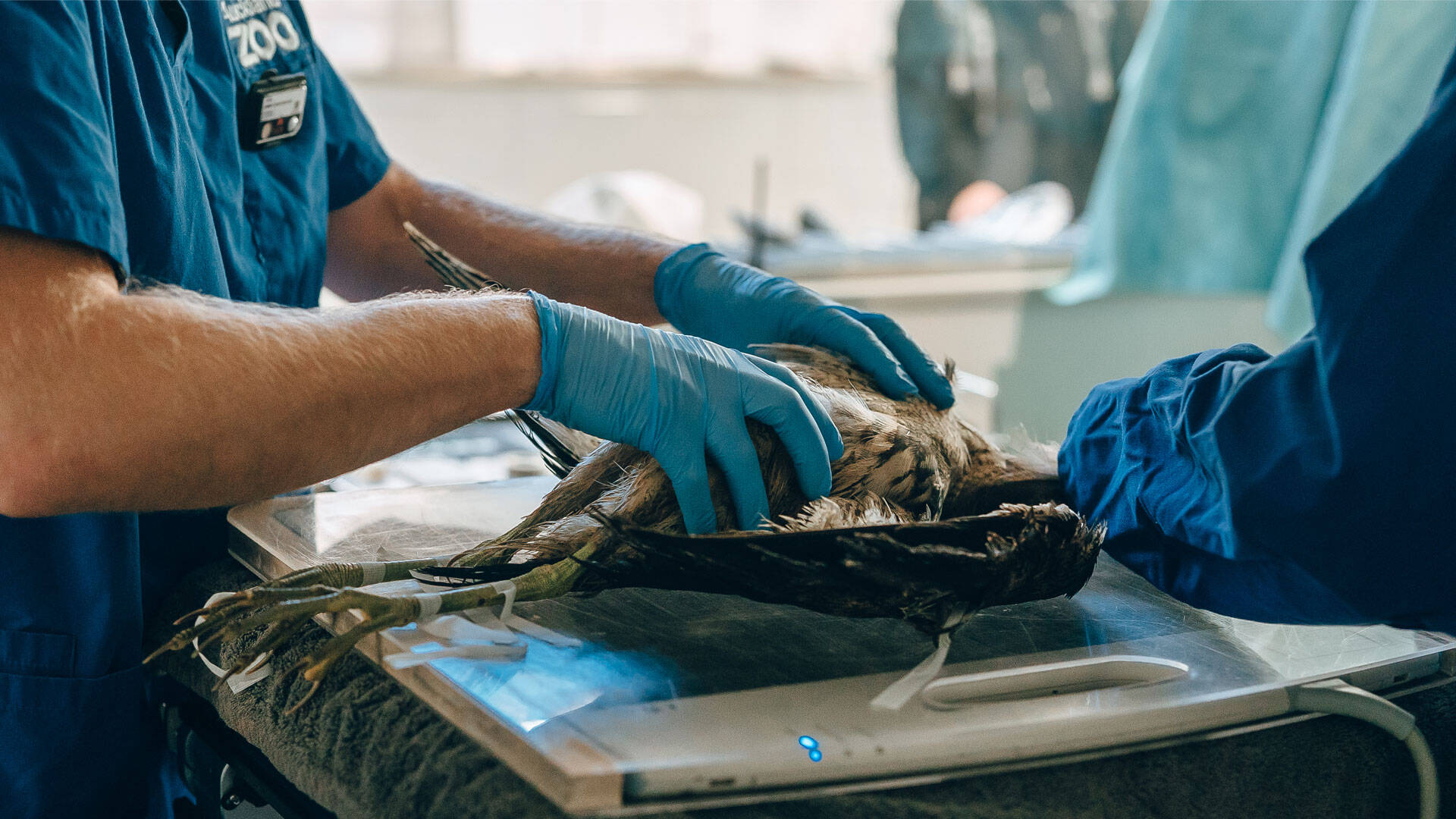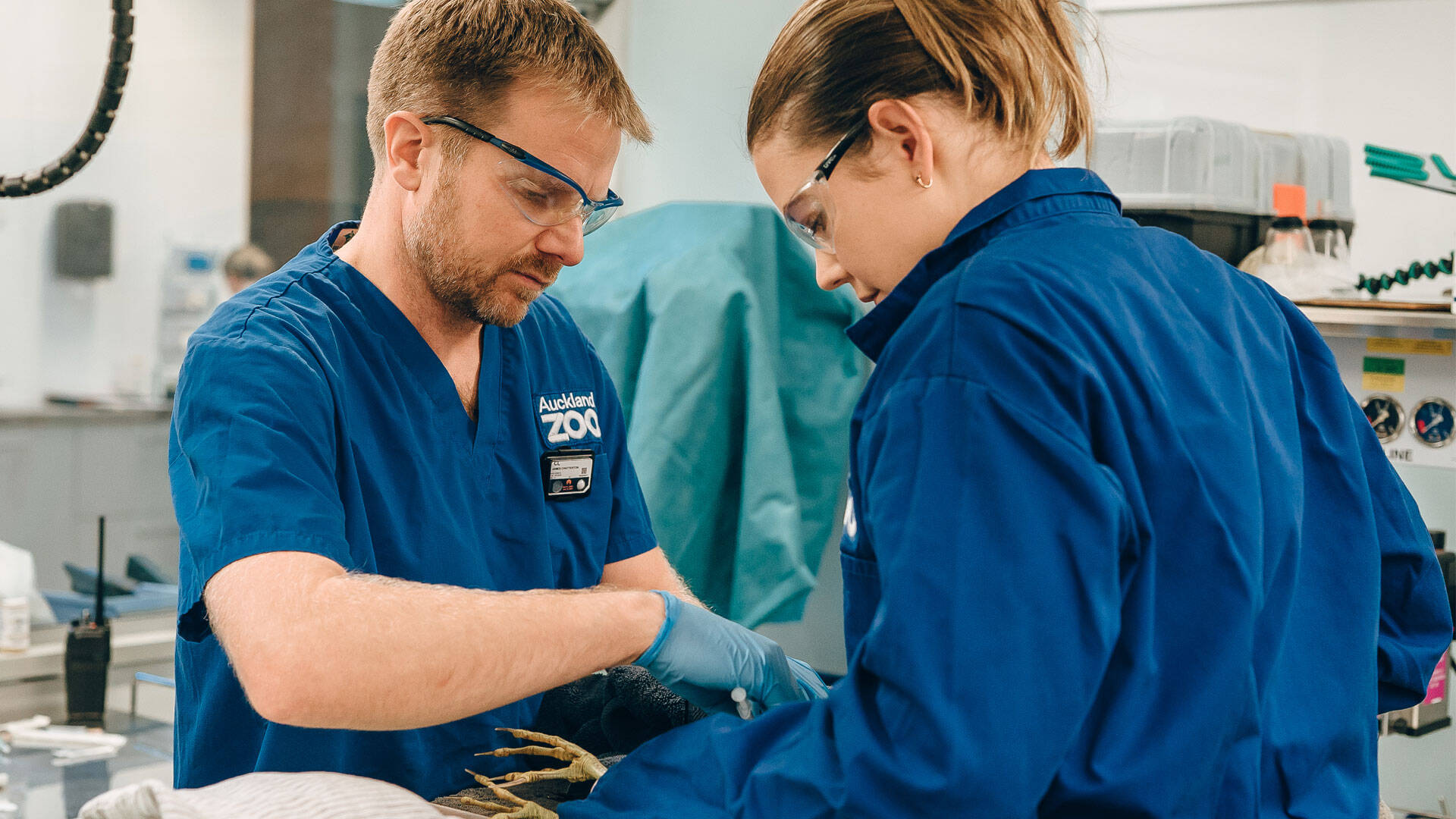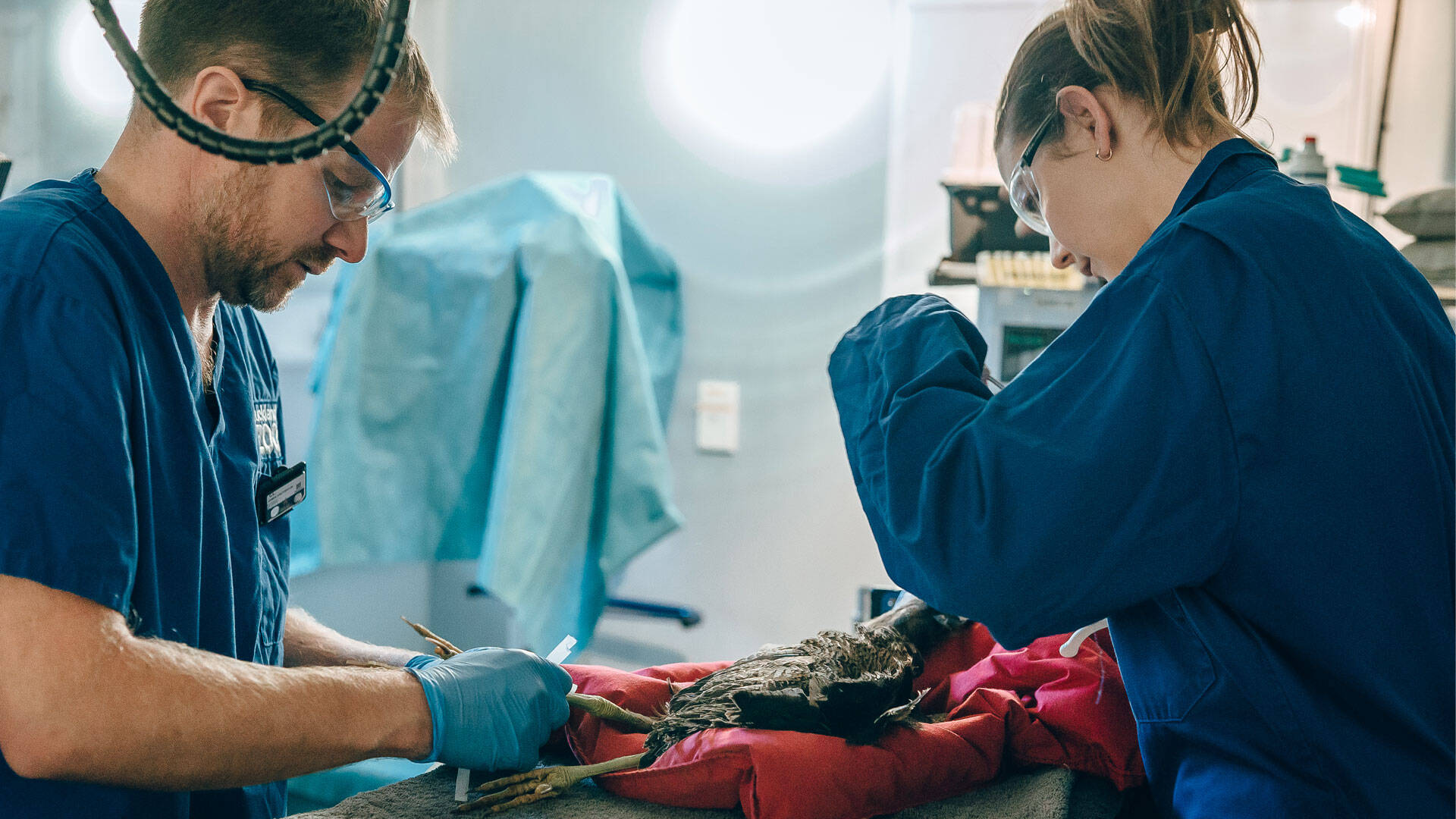On 1 May, following a short stay at Animal Referral Centre, our Department of Conservation (DOC) colleagues brought in the first matuku-hūrepo - a female juvenile found in a residential backyard in Pukekohe. Just over two weeks later a second female juvenile, found in Karaka, was brought into our hospital by BirdCare Aotearoa.
While full health checks and X-rays under general anaesthetic revealed no physical injuries, both birds were critically emaciated and dehydrated – weighing just 468grams and 570grams respectively. Through specialist treatment (including initial fluids administered subcutaneously) and plenty of nutritious food, both birds have been steadily gaining weight. The first arrival is now tipping the scales at a healthy 900grams and the second is tracking well at around 800grams.
“Matuku are an extremely cryptic and secretive species that typically don’t do well in human care,” says our Zoo vet, Dr Adam Naylor.
“For this reason, the team and I were mindful of the need to create a calm, quiet environment for them, minimise handling and ensure we gave these very underweight birds just the right amount of food and calories.


